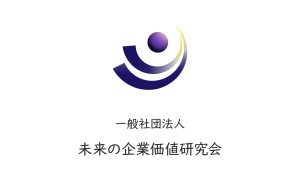Posted on January 12, 2024
Asset management nation(Shisan Unyo Rikkoku 資産運用立国)

On June 16, 2023, the Japanese government approved the ” Basic Policy 2023 “at a cabinet meeting and launched a policy plan called "Asset Management Nation''. This has been discussed in various places, but the main points are fundamental reform of personal pensions such as NISA and iDeCo, review of financial education and neutral investment advice, and improvement of governance and structure of asset management companies and asset owners. These are probably the most important issues in Japan today. Despite the declining birthrate, ageing population, and rising inflation rates worldwide, the proportion of investment in household budgets in Japan is still low. Given that it will be difficult to live a prosperous retirement with just national pensions and employee pensions, it is essential to somehow instil the knowledge and desire of the people to invest while also strengthening the domestic asset management industry.
“ The Progress Report on Enhancing Asset Management Business 2023 “ highlighted the issues faced by Japan's asset management industry, such as management quality, sales, and customer side (asset owners and individuals). Regarding quality, the report referred to management structure, operational transparency, and governance. Many of them are subsidiaries of financial institutions, and there are few independent asset managers in Japan. Many of them are passive investments, which tend to lower returns. The report pointed out that asset management companies are not fully fulfilling their role in discovering corporate value and seeking to increase value through engagement with investee companies.
In extreme terms, many of Japan's major asset management companies are subsidiaries of financial institutions, so they operate within affiliated companies, each with a smaller scale of AUM compared to overseas, and competition is not working. As a result, improving the quality of investments isn't easy. As a solution, it argues for the need for independent asset management companies and points to the need for policies that encourage the entry of global asset management companies.
In this paper, I would like to focus only on the issue of strengthening the asset management industry and discuss the issues that need to be addressed.
Expectations for independent asset management companies
The asset management industry, which is responsible for the nation's pensions, is expected to have high profitability and engage with investee companies to increase corporate value. To this end, the most important point pointed out by the Progress Report is the independence of asset management companies. This is mentioned not only in the Progress Report, but also in the Basic Policy 2023 and the subsequent Asset Management Task Force, which mainly discusses measures to lower the hurdles for independent asset managers overseas to expand into Japan. The hypothesis is that Japan's unique regulations and systems become a hurdle to entry. That would be correct. However, it would be good to also include in the discussion whether domestic asset management companies think the domestic system is good or not. They may think that if the system meets global standards in the first place, it also could streamline back-office operations and increase profitability.
The reason that independent asset management companies or establishing new asset management companies, not subsidiaries of any financial groups, are beneficial for an "asset management nation'' is the same as in other industries: it makes the industry competitive. Many of Japan's major asset management companies invest assets within affiliated companies and have affiliated financial institutions selling their investment trusts. If they don't have parents and affiliated financial institutions, they will face stiff competition. In this way, large-scale asset management companies like those in other countries may be created by merging in order to seek efficiency and increase the amount of money under management. As pointed out in the Progress Report, the current phenomenon of CEOs being sent by the parent company may not be strange if it is a group operation. It would be good to attract foreign capital, but it is necessary to first create a vision for how to think about the future of existing asset management companies. Although this might be a slightly different case, for example, as in the case of local banks merging across prefectures, asset management companies break away from their parent financial group, merge each other, become more independent, and then compete to acquire customers, perhaps this is one of the ways.
Independent is very few in the domestic asset management companies
Another issue in Japan regarding independence is that there are very few establishing new asset management companies, not subsidiaries of any financial groups in the country.
“Start-up development'' is listed as a major initiative in the economic policy “ New Form of Capitalism “, announced in November 2022, and even in asset management countries, the activation of funding for start-ups is also included in the scope. Start-ups are expected to quickly realise new technologies and ideas and provide new stimulation to the market. The asset management industry is the same. If the number of asset managers who establish his own companies and realise their ideal asset management increases, we can expect this industry to be revitalised. However, the fact that there are very few independents in Japan has been pointed out every year since the first Progress Report published in 2020. In recent years, the Financial Services Agency and the Tokyo Metropolitan Government have begun providing support such as subsidies and support for license applications, and there are cases in which people have been able to establish a company more smoothly than before by taking advantage of such support.
However, many people involved point out that the biggest reason why it is difficult to establish a new company is that there are no customers. The domestic asset owners have become more conservative since the AIJ incident and are unlikely to listen to proposals from independent asset management companies or those planning to become independent. It's not just independents, but newer types of investments like ESG and impact investing as well that are finding it harder to find customers. This issue is also recognised by "Asset Management Nation", and on October 2, 2023, Prime Minister Kishida announced at the Nikkei Sustainable Forum that ” the Asset Owner Principles”, which clarify the roles required of asset owners, will be developed by next summer. Subsequently, a task force was established at the Financial Services Agency, and these discussions are being held. However, is it simply a matter of awareness such that new types of investment, such as newly established companies and ESG/impact investing, are not accepted?
Towards true revitalisation of the asset management industry
Other people said that it has been pointed out that Japanese asset owners are not simply less aware, but rather that they are more particular about past investment performance and management structure. For this reason, they are reluctant to choose independent companies or methods such as ESG investment. For example, there is a deep-rooted belief that "ESG investment may be good for society, but it comes at the expense of profits.''
However, asset owners, as individuals, must have been aware of changes in disasters, agricultural crops, and fishing conditions that are thought to be the effects of climate change. Requiring companies to identify and respond to sustainability risks such as decarbonisation and biodiversity is not just a matter of regulation but is increasingly being recognised as an issue of corporate profitability and business sustainability. If this happens, asset managers will not only investing as same in the past but will also need to have investment policies based on sustainability scenarios. In other words, it is currently a big chance for independent companies (ESG and impact investing) to start new ways of doing things.
Globally, several investor organisation discussions have emerged to encourage asset owners and asset managers to discuss sustainability topics together, identify risks and impacts, and share the base of investment policies[i]. Increasingly, asset manager prefers to engage with companies based on scenarios tailored to local policies and United Nations initiatives rather than their own forecasts.
What we really need to focus on now is creating more opportunities for asset owners and asset managers in Japan to share the risks and impacts of sustainability in each industry and discuss future investments. Additionally, many Japanese companies are currently increasing their overseas sales.(According to the 2021 JBIC survey, the average responding company was 34.9%)Therefore, the discussion must be tailored to the global scenario, not just the domestic one.
[i] Recently, we have seen collaborative engagements among investors focusing on specific themes. Those activities are undertaken by investor organisations, well-known AIGCC, FAIRR, Access to Medicine, and Asia Research and Engagement, which discuss the risks and impacts of specific ESG themes.


